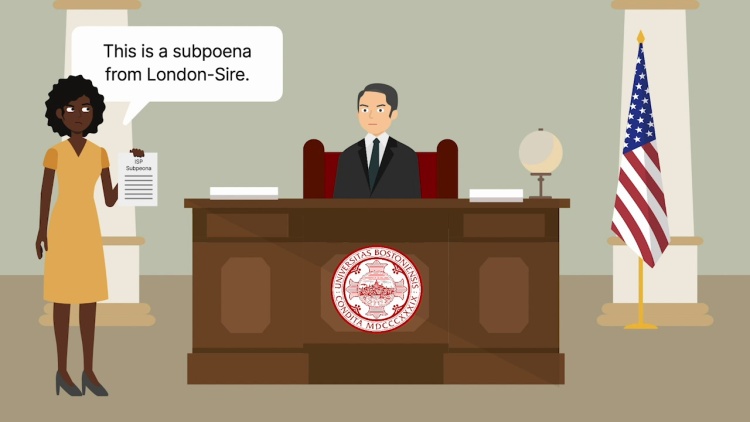London-Sire Records, Inc. v. Doe 1
United States District Court for the District of Massachusetts
542 F. Supp. 2d 153 (2008)
- Written by Lauren Petersen, JD
Facts
Peer-to-peer file sharing software allowed users of personal computers to share electronic files containing video or music with each other. The recipient could download an exact copy of the file being shared. If someone shared electronic files over peer-to-peer software, the sharing was only traceable back to the computer’s Internet Protocol (IP) number rather than to the individual. Often, internet service providers (ISPs) assigned IP numbers to a computer for specific computing sessions. Thus, an IP number was not always uniquely associated with only one computer. For this reason, the individual identities of file sharers could not be uncovered without help from the ISPs who had assigned IP numbers to specific computers for the computing sessions of individual shared files. London-Sire Records, Inc. (London-Sire) (plaintiff), and several other record companies, sued 40 John Doe users of file-sharing software for copyright infringement. To identify the John Does, London-Sire subpoenaed the computer users’ names from the relevant ISPs. Three John Does sought to quash the subpoenas seeking their identities. These John Does argued that disclosing their identities would violate their First Amendment rights to: (1) anonymous speech and (2) creative activity through sharing music. Additionally, the John Does argued that London-Sire’s subpoenas should be quashed because London-Sire had failed to plead an actionable harm to support its copyright-infringement claim. Specifically, the John Does argued that: (1) London-Sire’s copyright extended only to actual distributions of tangible objects and (2) simply making files available for sharing did not count as distributing the files.
Rule of Law
Issue
Holding and Reasoning (Gertner, J.)
What to do next…
Here's why 907,000 law students have relied on our case briefs:
- Written by law professors and practitioners, not other law students. 47,100 briefs, keyed to 996 casebooks. Top-notch customer support.
- The right amount of information, includes the facts, issues, rule of law, holding and reasoning, and any concurrences and dissents.
- Access in your classes, works on your mobile and tablet. Massive library of related video lessons and high quality multiple-choice questions.
- Easy to use, uniform format for every case brief. Written in plain English, not in legalese. Our briefs summarize and simplify; they don’t just repeat the court’s language.





